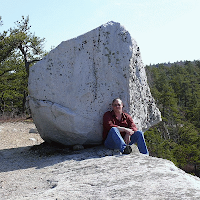Great analysis of the Science paper and NASA press conference last Thursday (see post 1 and post 2) by Dr. Rosemary (Rosie) Redfield who runs a microbiology lab at the University of British Columbia.
Read it here
A bit technical but well worth reading if you're interested in NASA's claims about these supposedly arsenic-based bacteria. A couple of great quotes:
"Bottom line: Lots of flim-flam, but very little reliable information... If this data was presented by a PhD student at their committee meeting, I'd send them back to the bench to do more cleanup and controls."
and
"I don't know whether the authors are just bad scientists or whether they're unscrupulously pushing NASA's 'There's life in outer space!' agenda. I hesitate to blame the reviewers, as their objections are likely to have been overruled by Science's editors in their eagerness to score such a high-impact publication."
Love it - this is how science works! Put your idea out there, give other people the chance to criticize it, and if it's a good idea supported by evidence it becomes accepted science. If not, which I think is the case here, it dies.
What's unfortunate is that our tax dollars are going to support bad science by people more interested in grabbing headlines.
Wednesday, December 8, 2010
Subscribe to:
Post Comments (Atom)



Hmm, let's review the facts so far...
ReplyDeleteSo far we have a peer-reviewed article published in a very well-respected journal, and we have a "blog post" by a scientist who was not involved in and has not (yet) tried to reproduce the work.
"What's unfortunate is that our tax dollars are going to support bad science by people more interested in grabbing headlines."
I'd call this a premature conclusion. Like you said, "this is how science works." I guess we'll see.
Another way to look at it is that NASA was trying to gin up some excitement for science through "headlines." That can't be all bad, can it?
Time will tell.
ReplyDeleteMany people believe NASA's overhyped press releases do more harm than good (see Phil Plait's Bad Astronomy blog, for example).